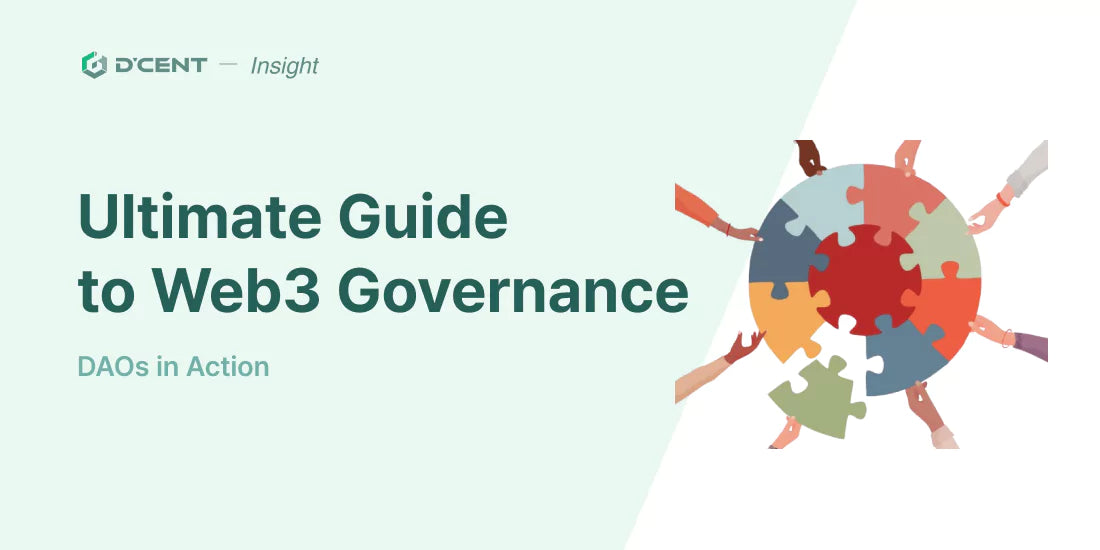Did you find this article helpful?
Sharing it takes less than 20 seconds, but we spent over 20 hours crafting it to bring you valuable insights. Help others by spreading the knowledge! 🚀

A Decentralized Autonomous Organization (DAO) is an organization without centralized leadership. Decision-making is carried out by a community organized according to specific rules coded on the blockchain. This decentralized structure provides transparency, autonomy, and inclusiveness, allowing all members to have a say in the operation and governance of the DAO.
DAOs aim to move away from traditional corporate structures, shifting towards a community-centered, open, and transparent model. While decisions in traditional organizations are made by management or a board of directors, DAOs operate through collective decision-making by members, automatically enforcing rules via smart contracts without intermediaries. In this blog, we will take a closer look at DAOs as a prime example of a decentralized system.
The concept of DAOs emerged alongside the development of blockchain technology. It gained prominence particularly with the launch of #Ethereum in 2015, which enabled the implementation of smart contracts. A smart contract is an executable agreement where the terms are written in code. Once certain conditions specified in the smart contract are met, the agreement is automatically executed on the blockchain, allowing the establishment of a decentralized system that automates processes without relying on centralized authority.
A major early attempt at a DAO was #The DAO, launched on the Ethereum blockchain in 2016. It aimed to operate as a venture capital fund managed by investors, but it was hacked due to vulnerabilities in the code, leading to a loss of around $50 million worth of Ether. This incident became a critical moment, causing the Ethereum blockchain to split into two: Ethereum and #Ethereum Classic. Despite this event, it demonstrated the potential of DAOs and encouraged the growth of decentralized governance models.
As mentioned earlier, a DAO operates based on rules defined by smart contracts. These contracts specify how the organization is managed, how decisions are made, and how funds are handled. Here’s a step-by-step look at how a typical DAO functions:
DAOs can be categorized into several types based on their purpose and structure:
While DeFi offers many advantages, there are still challenges and limitations that need to be addressed:
Despite their many advantages, DAOs also face several challenges:
- Security Risks: Since DAOs rely on smart contracts, vulnerabilities in the code can lead to significant financial losses. As seen in the 2016 incident with The DAO, security issues are a critical factor for the success of DAOs.
The concept of decentralized governance has the potential to reshape the future of organizations. As blockchain technology continues to evolve, DAOs can become more robust, secure, and user-friendly. This transformation can enable decentralized ownership and governance across various sectors, including finance, real estate, content creation, and supply chain management.
DAOs also play a crucial role in the development of #Web3. Web3 envisions an internet where users own their data and assets. DAOs help foster community-driven ecosystems on Web3 platforms, allowing users to actively participate in governance and be rewarded for their contributions. Looking ahead, the integration of AI and machine learning could make the decision-making processes within DAOs even more efficient. Additionally, DAOs may evolve to address current challenges by implementing reputation-based systems that limit the influence of large token holders, reduce the need for excessive voting, and reward active participants.
Decentralized Autonomous Organizations (DAOs) offer an innovative approach to organizational structure and governance. DAOs promote transparency, inclusiveness, and decentralization, reflecting the core values of blockchain technology. While still in their early stages, DAOs have significant potential to transform industries. However, for DAOs to reach their full potential, attention must be given to security, scalability, and legal clarity.
As more people recognize the benefits of decentralization and blockchain technology, the adoption of DAOs is likely to continue growing. With their ability to democratize decision-making and ownership, DAOs provide a glimpse into how organizations can operate in a truly global and decentralized digital economy.
Did you find this article helpful?
Sharing it takes less than 20 seconds, but we spent over 20 hours crafting it to bring you valuable insights. Help others by spreading the knowledge! 🚀